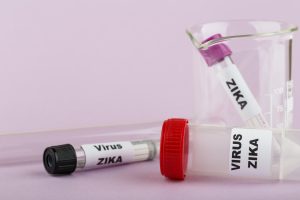
Previously, Zika cases included Zika-positive pregnant women displaying the symptoms, but now any woman with a Zika-positive blood test result is deemed as infected, regardless of the presence of symptoms.
The latest report reveals 157 pregnant women are infected with Zika across the U.S.
Matshidiso Moeti, director of the World Health Organization’s (WHO) regional office in Africa, said, “The findings are of concern because it is further proof that the outbreak is spreading beyond South America and is on the doorstep of Africa. This information will help African countries to re-evaluate their level of risk and adapt and increase their levels of preparedness.
The WHO advised African countries to increase risk communication to pregnant women to raise awareness, promote mosquito protection tips, and take precautions to avoid sexually transmitted Zika cases.
Countries should continue to heavily monitor ZIka cases and transmission along with birth-related defects as a result of Zika virus.
Zika virus may spread to Europe this summer
The World Health Organization has suggested Zika virus may possibly spread to Europe over the summer, but the risk of an outbreak is quite low. Areas at highest risk include the Black Sea coast of Russia and Georgia, and the island of Madeiro. Countries with the lowest risk include France, Italy, Spain, Greece, and the U.K.
At the present moment, the United Nations is not issuing any travel warnings.
The WHO is recommending that countries lower their risk of mosquito-breeding grounds, and that people become aware of the risk – especially, pregnant women.
Zika virus has been confirmed to contribute to birth defects. Dr. Zsuzsanna Jakab at the WHO said, “We call particularly on countries at higher risk to strengthen their national capacities and prioritize the activities that will prevent a large Zika outbreak.”
There is also a large stress on individuals who venture out of Europe over the summer for holidays. They need to be aware of the risk and take the appropriate steps to avoid being bitten.
Professor Jimmy Whitworth, at the London School of Hygiene & Tropical Medicine, concluded, “This is especially so for pregnant women, or women planning to become pregnant, travelling to areas where there is Zika, as there is now a proven link with microcephaly and other birth defects.”
Related Reading:
Zika virus development slowed by experimental hepatitis C antiviral drug: Study
Zika virus development can be slowed down by experimental hepatitis C antiviral drug. Professor Johan Neyts explained, “The Zika virus is transmitted by the tiger mosquito. Roughly twenty percent of the people who are infected actually get sick. The most common symptoms, which last about a week, are fever, fatigue, joint and muscle pain, rash, and red eyes. A small number of infected people go on to develop Guillain-Barré Syndrome, which causes muscle weakness and temporary paralysis. In some cases, the patient needs to be put on a ventilator.” Continue reading…
Zika virus can be controlled by changes in mosquito mating and gene expression
Zika virus can be controlled by changes in mosquito mating and gene expression. The new Cornell study is looking into possible mosquito mating modifications to induce a change in gene expression as a means to combat Zika. Continue reading…
Sources:
http://www.cbc.ca/news/health/zika-virus-1.3590893
http://www.bbc.com/news/health-36320826